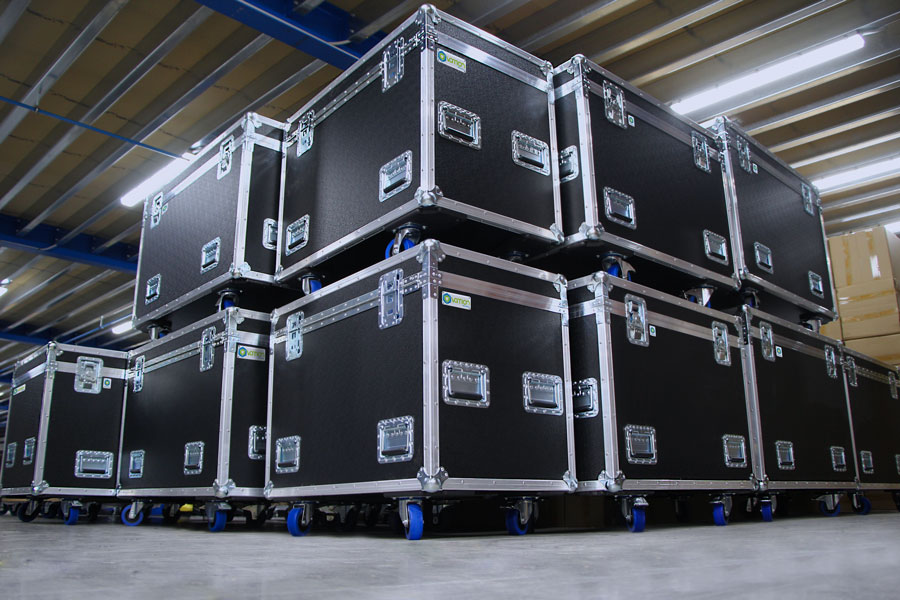Introduction
The history of road cases in Australia is a testament to the constant need for reliable, robust and protective cases for equipment during transportation. While the initial concept of road cases can be attributed to non-Australian companies, it was the ingenuity and entrepreneurial spirit of local manufacturers that propelled the evolution of road cases within the country.
Often perceived as worn-out and rugged in public, road cases play a vital role during tours by providing essential protection and security for equipment against adverse weather conditions. Additionally, they prove invaluable on rough roads as they ensure the safety of the gear. Surprisingly versatile, these cases can even serve as makeshift chairs or tables when the need arises, showcasing their adaptability and encouraging creative thinking.
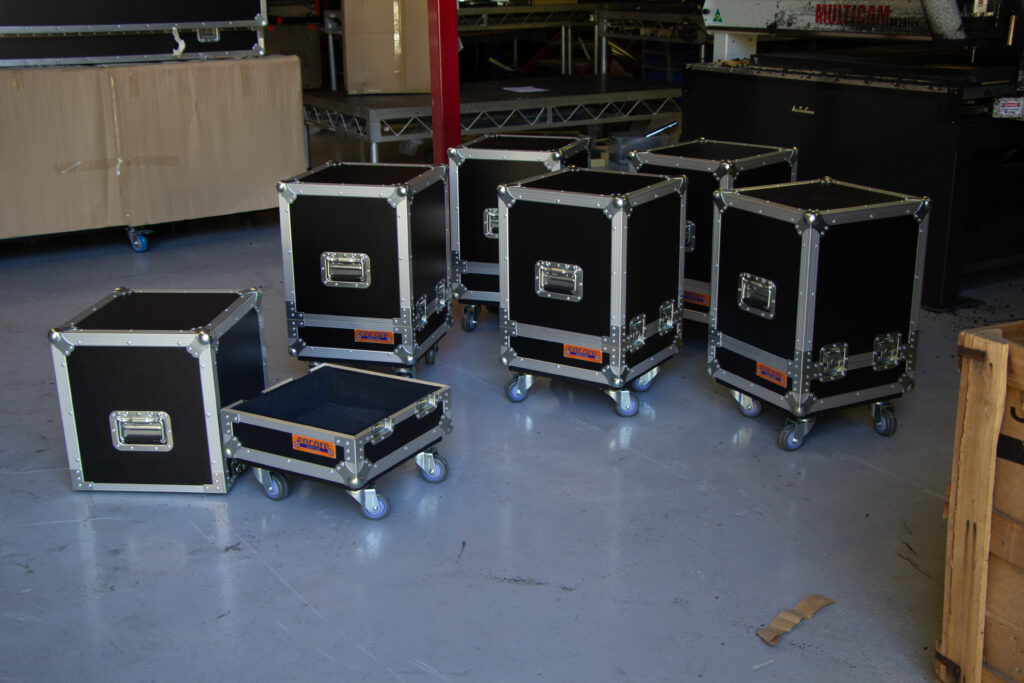
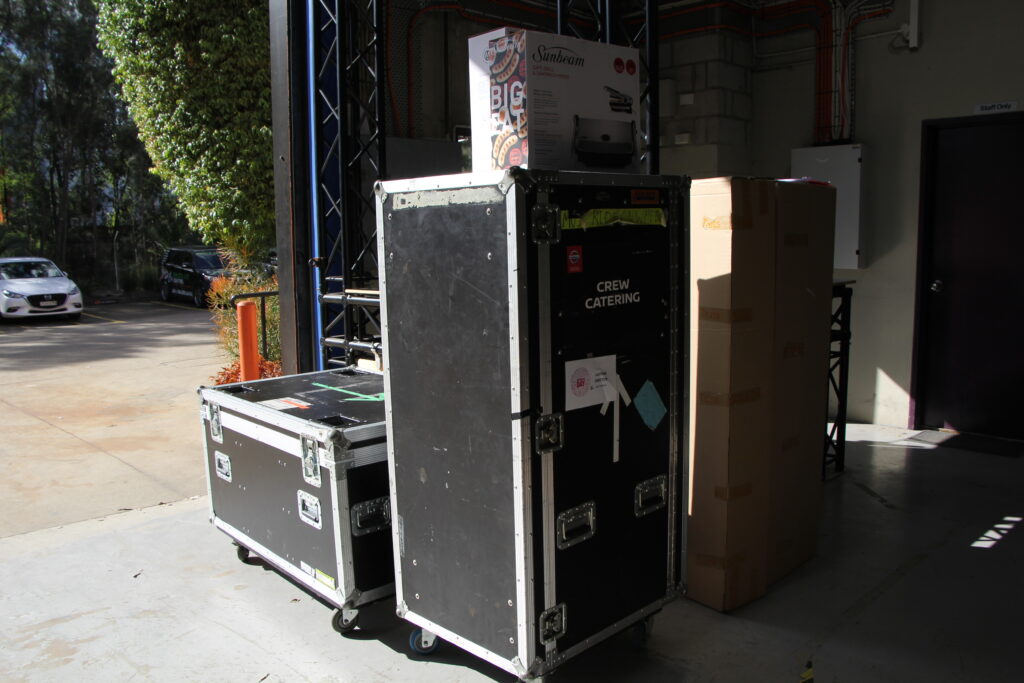
International Inspiration
The early days of road cases can be traced back to innovative thinkers and manufacturers out of Australia. Although it’s unclear who first came up with the production of road cases, renowned pioneers such as the Acme Pak Company are internationally credited for their early establishment and distribution.
Founded in 1952 in the United States, the Acme Pak Company originated from efforts to enhance war material packaging during World War II. It emerged due to the discovery that over 40% of materials suffered damages during overseas transportation from inadequate packing. Following the end of the war, the company seized the opportunity from the birth of rock and roll and the growing touring industry by establishing Anvil Cases, a new division based in California. This division focused on crafting road cases specifically designed to safeguard sensitive and vulnerable musical equipment from the adverse effects of changing conditions on the road.
With the popularity of more sensitive musical equipment such as electric guitars, synthesizers and amplifiers, most musicians looked to Anvil Cases to purchase their road cases to prevent any damage to their vulnerable equipment. As the leading company at the time, Anvil Cases became most musicians’ go-to company due to their established reputation and location.
Their influence in the music and entertainment industry travelled internationally, where Australia caught wind of it and became inspired to locally manufacture their designs and brands to suit their artists.
The Evolution of Touring in Australia
Australia’s history of touring is a journey that reflects the development of the country’s entertainment industry, cultural shifts, technological advancements, and the changing preferences of audiences. All these shifts gave way to the emergence of Australian road case companies as a response to the growing demand for durable and reliable equipment protection solutions.
The earliest touring performances in Australia can be traced back to the 18th and 19th centuries, when touring artists and entertainers, mostly from Europe and America, embarked on a long and arduous journey to bring their shows to Australian audiences. These touring acts included theatre companies, opera troupes, circus performers, and musicians, who often travelled by ship to reach the distant shores of Australia.
In the late 19th and early 20th centuries, vaudeville and multiple variety shows gained popularity in Australia. These shows feature a mix of acts such as singers, dancers, comedians and more. Touring companies traversed the country, bringing diverse forms of entertainment to both urban centres and regional areas.
By the early 20th century, the spread of radio broadcasting became profound. Audiences were now able to experience live performances from the comfort of their homes, reducing the demand for some types of live shows. Similarly, the rise of cinema as a popular form of entertainment provided a new avenue for audiences to enjoy visual and theatrical experiences.
It was not until the mid-20th century that music tours gained prominence in Australia. International acts, coming from the United States and the United Kingdom, began touring the country and attracting massive crowds and igniting the passions of Australian audiences. For example, when the Beatles toured in 1964, it sparked the emergence of a vibrant local music scene.
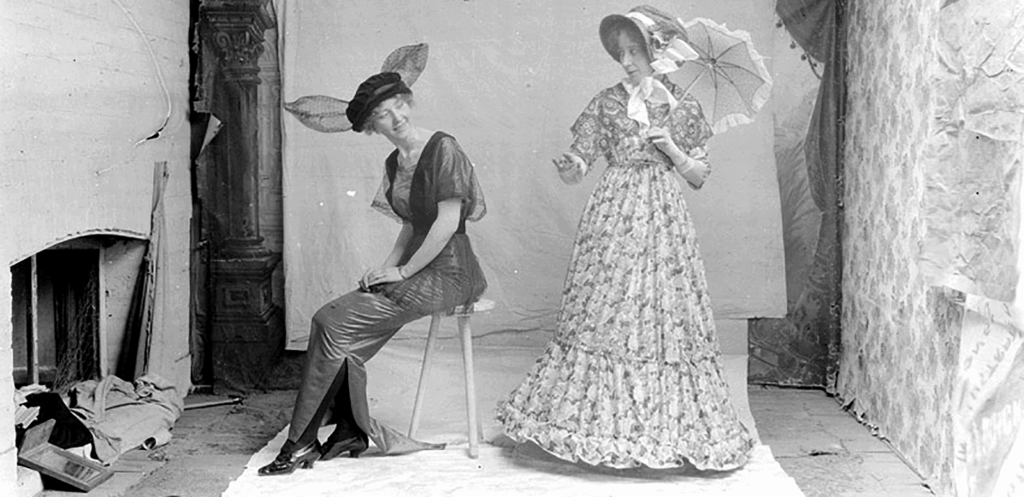
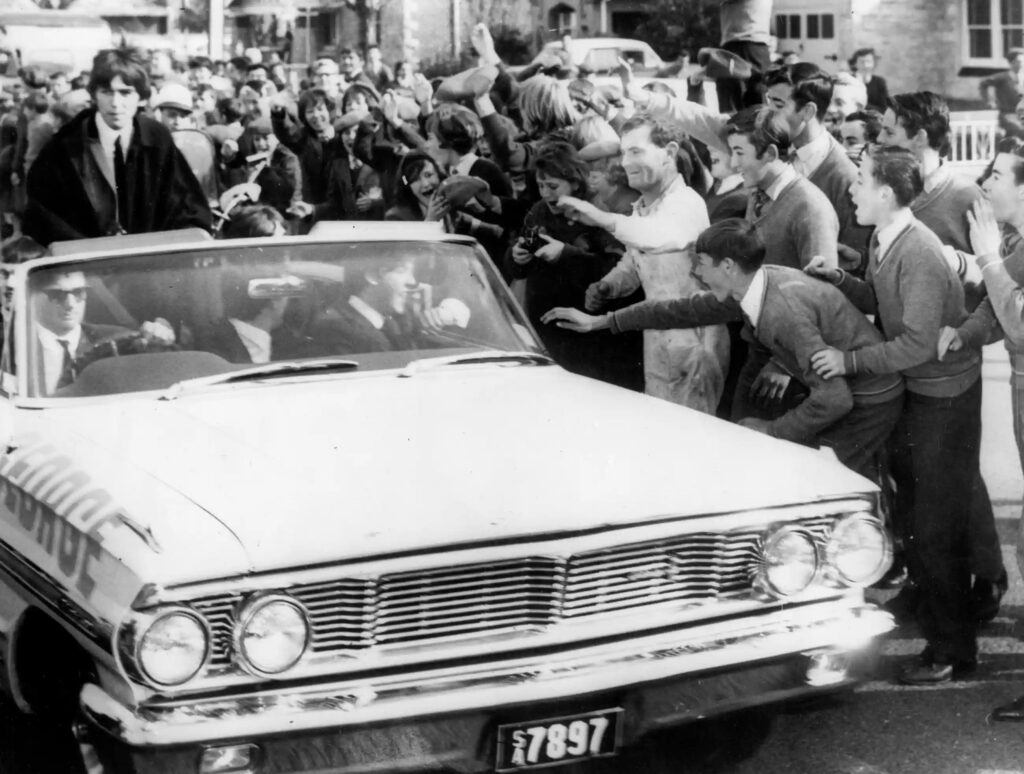
Presently, in the 21st century, there has been a rise in music festivals in Australia such as the Byron Bay Bluesfest, Big Day Out, Splendour in the Grass and more. These became iconic gatherings, attracting local and international artists and drawing in crowds of music enthusiasts from all over the country. These festivals showcased a diverse range of genres and contributed to the cultural fabric of Australian music.

The Emergence of Australian Road Case Companies
The emergence of Australian road case companies marked a significant development in the country’s equipment protection industry. As the need for reliable and customised casing solutions grew, local companies began to establish themselves as pioneers in designing and manufacturing road cases tailored to the specific requirements of various industries.
During the late 20th century and early 21st century, several Australian road case companies emerged, contributing to the advancement and evolution of the industry. These companies played a crucial role in meeting the demands of professionals in fields such as music, entertainment, broadcasting, audiovisual, and more.
The development of the road case industry in Australia was driven by the demands of professionals who required robust and reliable solutions to safeguard their valuable equipment. Road cases evolved from simple wooden or metal enclosures to incorporate advanced features such as foam lining, shock absorption systems, customised compartments, and stackability for efficient storage and transportation.
Moreover, Australian road case companies also began to collaborate with international manufacturers to offer a broader range of products to meet diverse customer needs. These partnerships allowed Australian manufacturers to provide customers with a standard range of cases known for their durability and ability to withstand demanding environments.
Through continuous improvement programs, the Australian road case companies introduced advancements in design, manufacturing technologies, and quality control processes. This steady progression ensured that the industry met and exceeded international standards and customer expectations.
Other than contributing to the economy, the emergence of local Australian road cases played a vital role in supporting the country’s creative and entertainment industries. By providing reliable equipment protection, these companies enabled professionals to safely transport their gear, ensuring smooth operations for performances, events, productions, and various other applications.
Development and Changes
The development and changes in road cases in Australia have been instrumental in meeting the evolving needs of professionals across different industries. These advancements have made road cases more durable, lightweight, and effective in protecting equipment.
One notable development is the incorporation of aluminium extrusions, laminated plywood, and foam inserts into road case construction. Aluminium extrusions provide structural support and reinforcement, making cases more resistant to impact and rough handling. Laminated plywood offers strength and stability while keeping the weight of the case manageable. Foam inserts, often customised to fit specific equipment, provide cushioning and prevent movement, ensuring optimal protection during transportation.
Customisation has become a crucial aspect of road case design. Manufacturers now offer tailored solutions that securely hold and protect specific equipment. This customisation allows professionals to have cases designed precisely for their gear, ensuring a snug fit and maximum protection. The introduction of removable foam inserts further enhances adaptability, enabling users to transport different items with the same case by simply rearranging the inserts.
As technology continues to advance, road cases have adapted to accommodate newer devices and equipment. Specialised cases have been developed to protect delicate audiovisual equipment, trade show displays, sports equipment, and more. These specialised cases incorporate features like shock absorption, climate control, and secure mounting systems to meet the specific equipment of different industries. The versatility and adaptability of road cases have cemented their position as indispensable assets for professionals in music, film, television, and various other fields.
Overall, the continuous development and improvements in road case technology in Australia have revolutionised equipment protection and transportation. These advancements have not only enhanced the safety and security of valuable equipment but also provided professionals with reliable solutions tailored to their specific needs, ensuring peace of mind during tours, performances, and various work settings.

Conclusion
The history of road cases in Australia showcases the country’s innovative spirit and commitment to meeting the evolving needs of professionals across various industries. While the initial concept of road cases originated outside of Australia, it was the ingenuity and entrepreneurial drive of local manufacturers that propelled the development and growth of the industry within the country.
Inspired by international pioneers such as the Acme Pak Company, Australian road case companies emerged to cater to the rising demand for durable and reliable equipment protection solutions. The increasing popularity of live music performances and touring acts, coupled with the country’s vibrant music scene and cultural connection to music, created a favourable environment for the industry’s growth.
The development and changes in road cases over the years have been significant. Manufacturers incorporated advancements such as aluminium extrusions, laminated plywood, and foam inserts to enhance durability, weight, and equipment protection. Customisation became a key aspect, allowing for tailored solutions that securely hold specific equipment, while removable foam inserts increased adaptability.
As technology advanced, road cases adapted to accommodate newer devices and equipment, including delicate audiovisual equipment, trade show displays, and sports gear. Specialised cases were developed with features like shock absorption and climate control to meet industry-specific requirements.
The first road case companies have played a crucial role in shaping the industry. Their dedication to innovation, craftsmanship, and meeting the unique needs of musicians and production crews has solidified road cases as indispensable assets for professionals across music, film, television, and various other fields.
The continuous development and improvements in road case technology in Australia have revolutionised equipment protection and transportation. These advancements have provided professionals with reliable solutions that ensure the safety and security of valuable equipment during tours, performances, and work settings. The evolution of road cases in Australia is a testament to the ongoing commitment to innovation and meeting the dynamic demands of the entertainment and touring industries.

